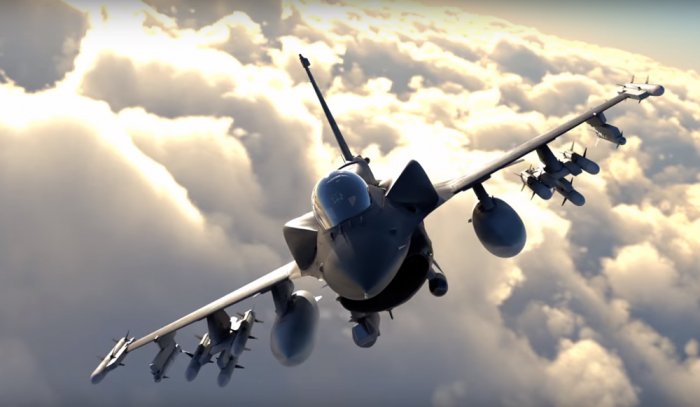New Delhi: US aerospace giant Lockheed Martin has said it will not sell its newly rolled out F-21 fighter jet to any other country if India places an order for 114 planes, in an offer aimed at pitching itself ahead of its US, European and Russian competitors for the mega deal.
Vivek Lall, vice-president of strategy and business development for Lockheed Martin, has said that if F-21 wins the contract, then India will be integrated into the company’s global fighter ecosystem, which is a USD 165 billion dollar market.
Lall said the new combat jet is designed to operate across over 60 air force stations in India, and its key aspects include superior engine matrix, electronic warfare system and weapons carrying capacity.
“We will not sell this platform and the configuration to anyone in the world. It is a significant commitment by Lockheed Martin and it shows importance of India and importance of unique requirement India has,” Lall informed.
Last month, the Indian Air Force issued an RFI (Request for Information) or initial tender to acquire 114 jets at a cost of around USD 18 billion, which is billed as one of the world’s biggest military procurement in recent years.
The top contenders for the deal include Lockheed’s F-21, Boeing’s F/A-18, Dassault Aviation’s Rafale, the Eurofighter Typhoon, Russian aircraft Mig 35 and Saab’s Gripen.
Official sources said the IAF is pushing for finalising the mega deal in the wake of the Balakot strikes and evolving security scenario in the region.
Lall said Lockheed will not only set up a state-of-the-art F-21 manufacturing facility along with the Tata Group, but will also help India create an ecosystem for overall growth of the country’s defence manufacturing.
On observation that the F-21 is similar to Lockheed’s F-16 Block 70 combat jet, Lall said such a view is unfair as there have been significantly differences between the two platforms.
“F-21 is different in terms of various aspects including its air frame, weapons capability, engine matrix and availability of engine options,” Lall stated.
“As for example, you are now looking at 12,000 hours of service life air frame in the F-21 versus 8,000 hours previously (F-16 Block 70). The additional 40 per cent weapons carrying capability is new in F-21 which was not there in F-16 Block 70. The electronic warfare system is uniquely developed for India. Looking from a distance may make F-21 look similar to F-16 Block 70, but it is different,” he added.
